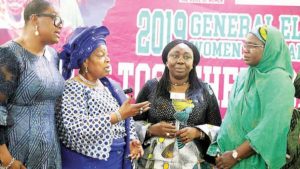REPORT OF THE COMMENCEMENT LECTURE OF SOCIAL MEDIA FOR ACCOUNTABILITY (SM4A) CONDUCTED ON THE 29TH OF JUNE, 2021 AT CITAD OFFICE
The Centre for Information Technology and Development had on the 29th of June, 2021 held a commencement lecture for its Social Media for Accountability (SM4A) Training which is being supported by the Macarthur Foundation at its Social Media Lab. The lecture was organized to sensitize the first thirty selected participants out of the hundreds applications received who will benefit from the program. At the commencement lecture, Dr. Nura Ibrahim, Head of Department, Information and Media Studies, Bayero University, Kano presented a paper title Youth, Social Media and Making of Accountability Governance in Nigeria while Professor Ismail A. Zango, Director Mambayya served as the chairman of the occasion.
In his opening remarks at the commencement lecture, the Executive Director, Centre for Information Technology and Development (CITAD), Engineer Yunusa Zakari Ya’u who was represented by the organization’s Training Coordinator, Malam Ahmad Abdullahi Yakasai said the reason behind coming up with idea of the Social Media for Accountability Training is to equip and train Youth on how best to use the social media for accountability and to see to the creation of New Nigeria where justice and accountability will prevail. He continued to say that social media provided an avenue for people to inject their voice and many individuals are using social media without tapping its potentials and how best it will benefit them and their country. He urged the selected beneficiaries to utilize the resources that will be provided during the training in order advocate for a better society using their different social media platforms. Â
Remarking at the event, the chairman of the event, Professor Zango mentioned that some social media users, influencers and self-styled warriors are using their social media platforms and fringe websites to proliferate misinformation and fake news, for just growing their online followership. Zango also added that youth can use social media to bring about positive changes and reforms in the country. Also social media can be used to hold government officials accountable for their action which in normal circumstances cannot be done. The chairman urged the beneficiating youth to verify any information or news before posting it on social media and post genuine and accurate information on their social media platforms in order to draw the attention of our leaders for accountability. At the end, he cautioned the youth against using the social media for blackmail and sharing of fake news.
Presenting his paper at the commencement lecture, Dr. Nura charged the youth to be good ambassadors of their communities. While presenting, Dr. Nura said technology can serve as a powerful tool for public opinion that could compel leaders to be accountable saying that if there is an issue with national interest, youth should take it to the social media, make an issue of it, and demand accountability from the parties concerned.
However, Dr. Nura cautioned social media users to discern between credible information from malicious posts, adding that if one stands on the path of truth, he can’t do anything against the truth but for the truth. Giving example with power of social media, Dr. Nura said apart from organising protests, the social media has been used to also hasten the speed of activities relating to governance in different spheres. In 2021, there was a case of crisis in Wukari of Taraba state, with people getting injured and killed. Internet users quickly uploaded the information on Twitter, calling on the Police to come to the community’s aid. Shortly afterwards, the Nigerian Police Force (NPF) responded via Twitter that officers had been deployed, and the issue addressed.Â
At the end, Dr. Ibrahim said Social media have revolutionized the way people communicate. In Nigeria, youths, who have higher levels of affinity with the social media, are using it to achieve different ends. It holds lots of potential for news, information, entertainment, mobilization, interaction and expression.




